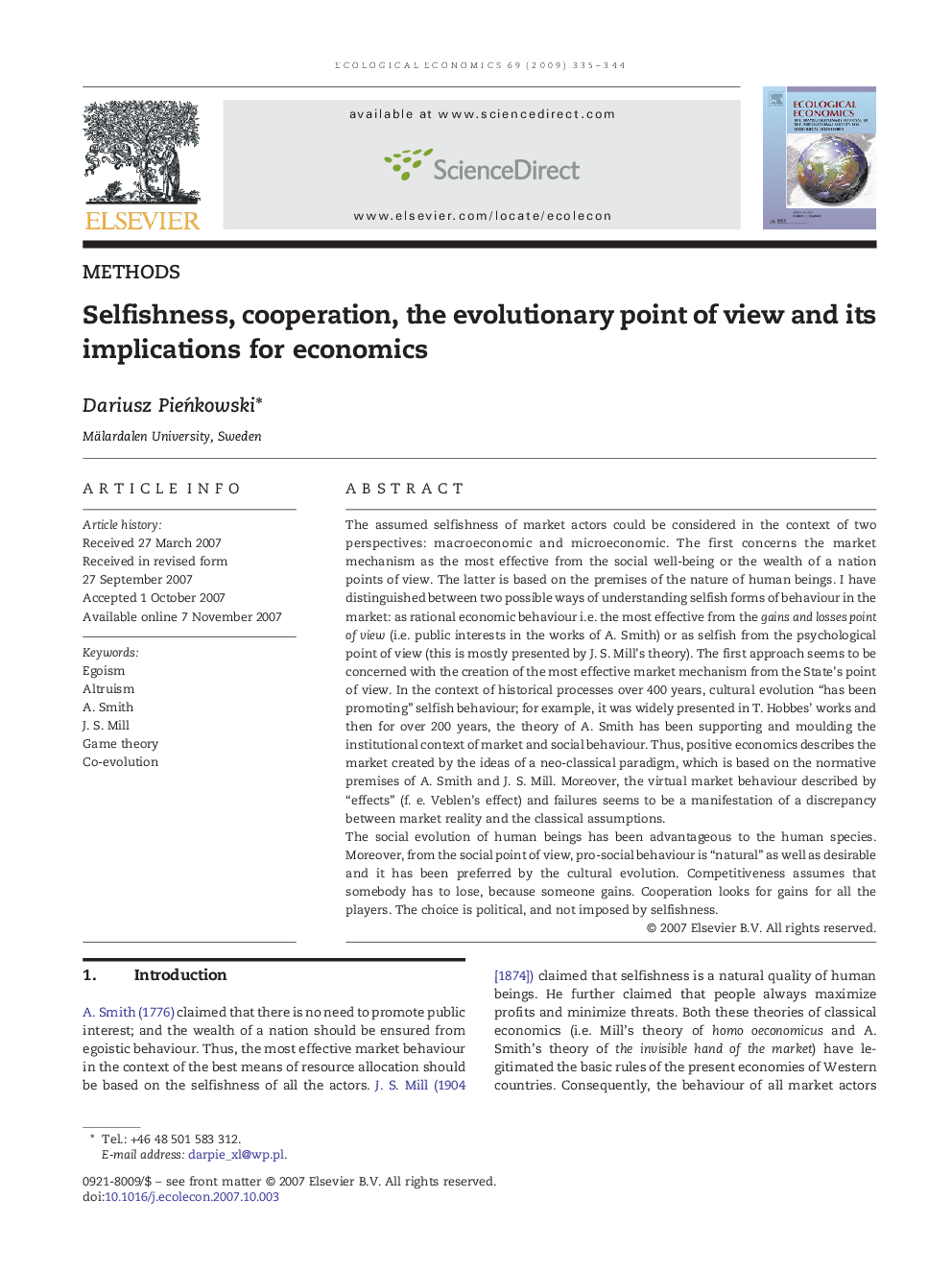| کد مقاله | کد نشریه | سال انتشار | مقاله انگلیسی | نسخه تمام متن |
|---|---|---|---|---|
| 5051261 | 1371118 | 2009 | 10 صفحه PDF | دانلود رایگان |

The assumed selfishness of market actors could be considered in the context of two perspectives: macroeconomic and microeconomic. The first concerns the market mechanism as the most effective from the social well-being or the wealth of a nation points of view. The latter is based on the premises of the nature of human beings. I have distinguished between two possible ways of understanding selfish forms of behaviour in the market: as rational economic behaviour i.e. the most effective from the gains and losses point of view (i.e. public interests in the works of A. Smith) or as selfish from the psychological point of view (this is mostly presented by J. S. Mill's theory). The first approach seems to be concerned with the creation of the most effective market mechanism from the State's point of view. In the context of historical processes over 400Â years, cultural evolution “has been promoting” selfish behaviour; for example, it was widely presented in T. Hobbes' works and then for over 200Â years, the theory of A. Smith has been supporting and moulding the institutional context of market and social behaviour. Thus, positive economics describes the market created by the ideas of a neo-classical paradigm, which is based on the normative premises of A. Smith and J. S. Mill. Moreover, the virtual market behaviour described by “effects” (f. e. Veblen's effect) and failures seems to be a manifestation of a discrepancy between market reality and the classical assumptions.The social evolution of human beings has been advantageous to the human species. Moreover, from the social point of view, pro-social behaviour is “natural” as well as desirable and it has been preferred by the cultural evolution. Competitiveness assumes that somebody has to lose, because someone gains. Cooperation looks for gains for all the players. The choice is political, and not imposed by selfishness.
Journal: Ecological Economics - Volume 69, Issue 2, 15 December 2009, Pages 335-344